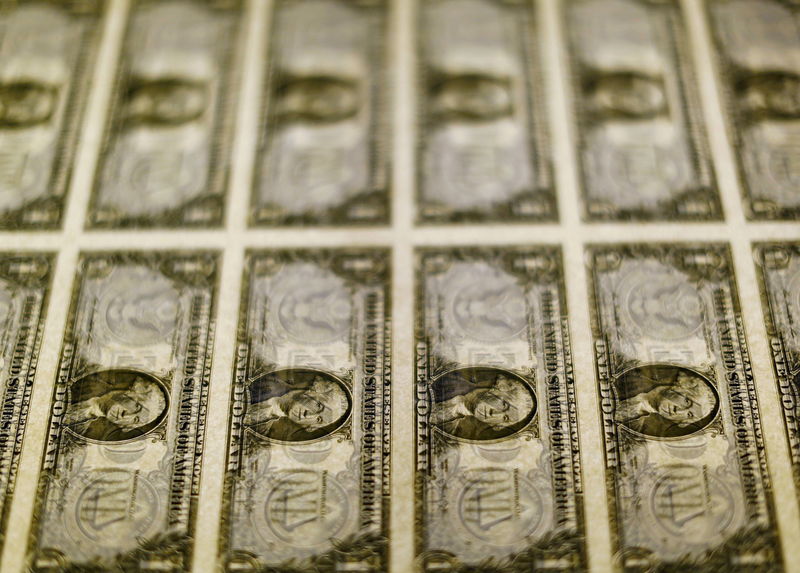
At 05:25 ET (09:25 GMT), the Dollar Index, which tracks the greenback against a basket of six other currencies, traded at 104.640, on course for a weekly loss of around 0.5%, as well as a monthly drop of 1.3%.
The USD has suffered from a “double whammy” lately, according to analysts at HSBC, in a note dated May 16.
Softer-than-expected U.S. activity data and the lack of further upside surprises in April inflation data have rejuvenated dovish hopes for the Fed–hitting the USD through the rates channel–and helped spur risk appetite–hurting the USD through the risk appetite channel which has shown recent signs of gaining more traction.
However, this two-pronged hit to the USD can also play in the opposite direction, the bank added.
After three months of upside surprises, the Fed may need more than one month’s in line inflation data to be confident about inflation moving to target.
Also, Fed rhetoric arguing for patience might unsettle the market ahead of the June FOMC where new “dots” lie in wait.
“We look for the USD selling of the last month to stop in the coming weeks, with a bounce possible against those currencies that could deliver a dovish surprise, or which are vulnerable to risk aversion,” the U.K.-based bank said.
HSBC has chosen to express this expected shift in dollar tone against the euro – opening a trade idea to sell EUR/USD at $1.0880, targeting $1.0550, with a stop at $1.1050.
At 05:25 ET, EUR/USD traded at $1.0841, on course for a weekly gain of 0.7% and a monthly increase of 1.9%.
“While ECB rhetoric suggests a June rate cut seems all but certain, we believe the market may be under-pricing the risk that the door will be left open to a follow-up cut in July,” the bank said.
To read the full article, Click Here
